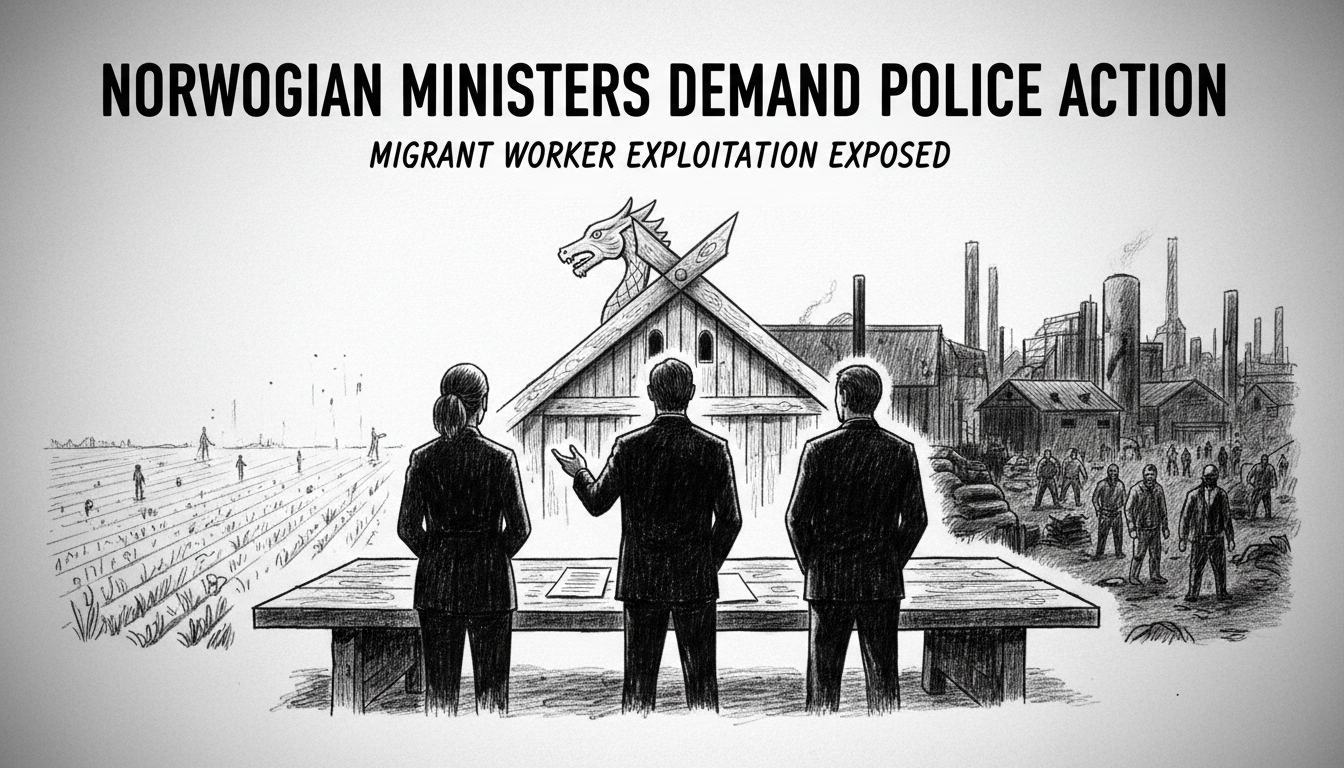Norwegian justice and labor ministers are demanding immediate police action following revelations about seasonal agricultural workers disappearing from farms. These workers then reappear in illegal marijuana plantations and unlicensed nail salons across Norway.
Justice Minister Astri Aas-Hansen confirmed the government takes these reports seriously. She expects police to respond quickly to the situation. The minister spoke after investigative reports uncovered systematic abuse of seasonal worker programs.
Norwegian farmers are being used as part of human smuggling operations according to the findings. Dozens of Vietnamese seasonal workers have vanished from legitimate agricultural work. Investigators later located these workers in illegal operations where they should not be working.
The situation highlights growing concerns about labor exploitation in Norway's agricultural sector. Seasonal worker programs designed to help farmers are being manipulated by criminal networks. These networks move workers from legal farms to illegal operations.
Norway's strict immigration and labor laws create vulnerabilities that criminals exploit. The country's high wages and strong worker protections make it attractive for illegal labor operations. Criminal groups profit by bringing workers into the country legally then moving them to higher-paying illegal work.
This pattern reflects broader challenges facing Nordic countries with seasonal labor needs. Sweden and Denmark have faced similar issues with migrant worker exploitation. The problem tests Norway's reputation for fair labor practices and human rights.
Vietnamese workers constitute a significant portion of Norway's seasonal agricultural labor force. They typically arrive through legal channels with proper documentation. The disappearance of dozens suggests organized criminal activity rather than individual cases.
Norwegian authorities face pressure to balance labor market needs with immigration control. Farmers require seasonal workers for harvest seasons. Yet the system appears vulnerable to abuse by smuggling networks.
The justice minister's statement indicates the government recognizes the seriousness of the situation. Her demand for police action suggests coordinated efforts may follow. Previous cases of labor exploitation in Norway have led to criminal prosecutions and policy changes.
International observers will watch how Norway handles this challenge. The country often ranks highly on global anti-corruption and rule of law indexes. Effective response to this crisis could set standards for other Nordic nations facing similar issues.
What happens next depends on police investigations and potential policy reforms. The government may tighten seasonal worker program controls. Farmers might face increased scrutiny when applying for foreign labor permits.
Workers caught in these situations face difficult choices. They often arrive with debt to smuggling networks. Moving to illegal work might seem their only option despite the risks involved.
Norwegian society generally values transparency and rule of law. These revelations about systemic abuse will likely generate public demand for solutions. The coming weeks will show whether authorities can effectively address this complex problem.

